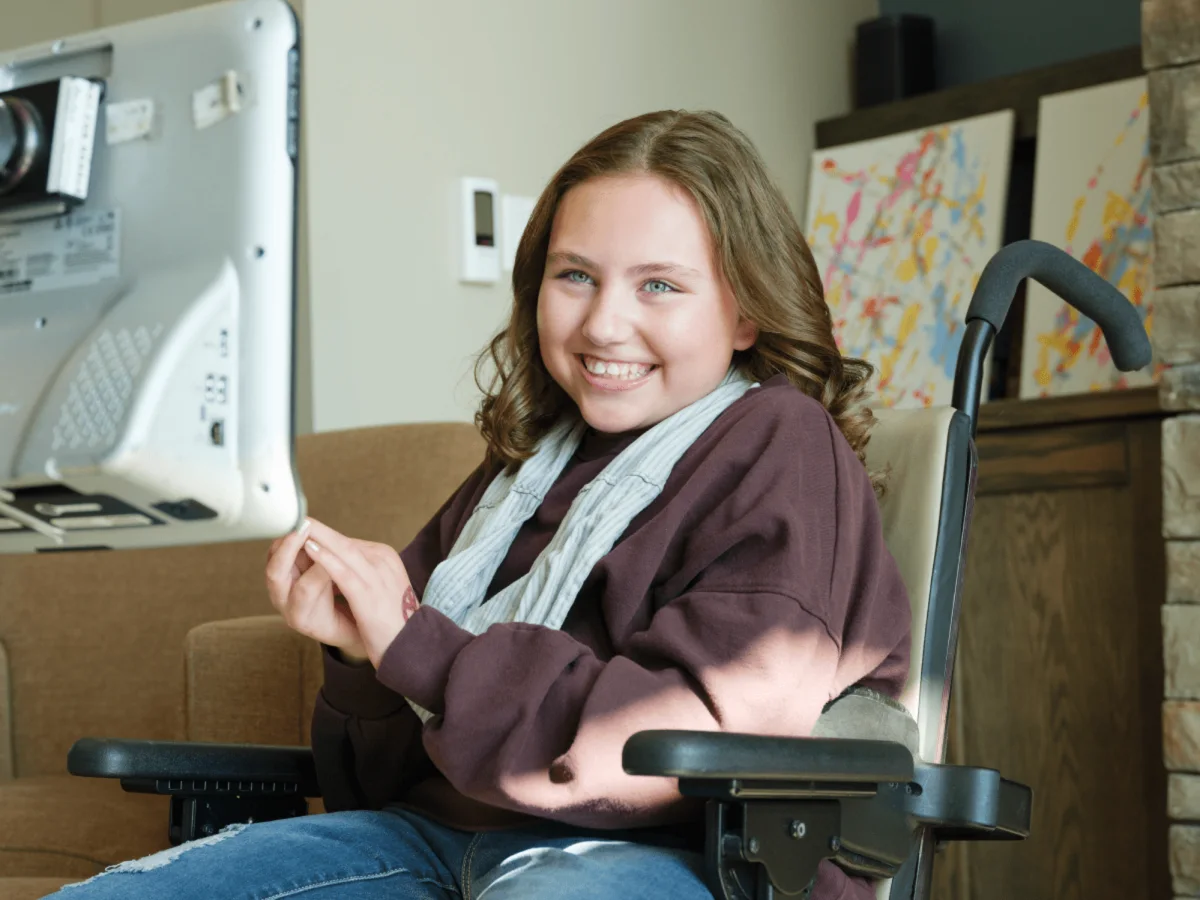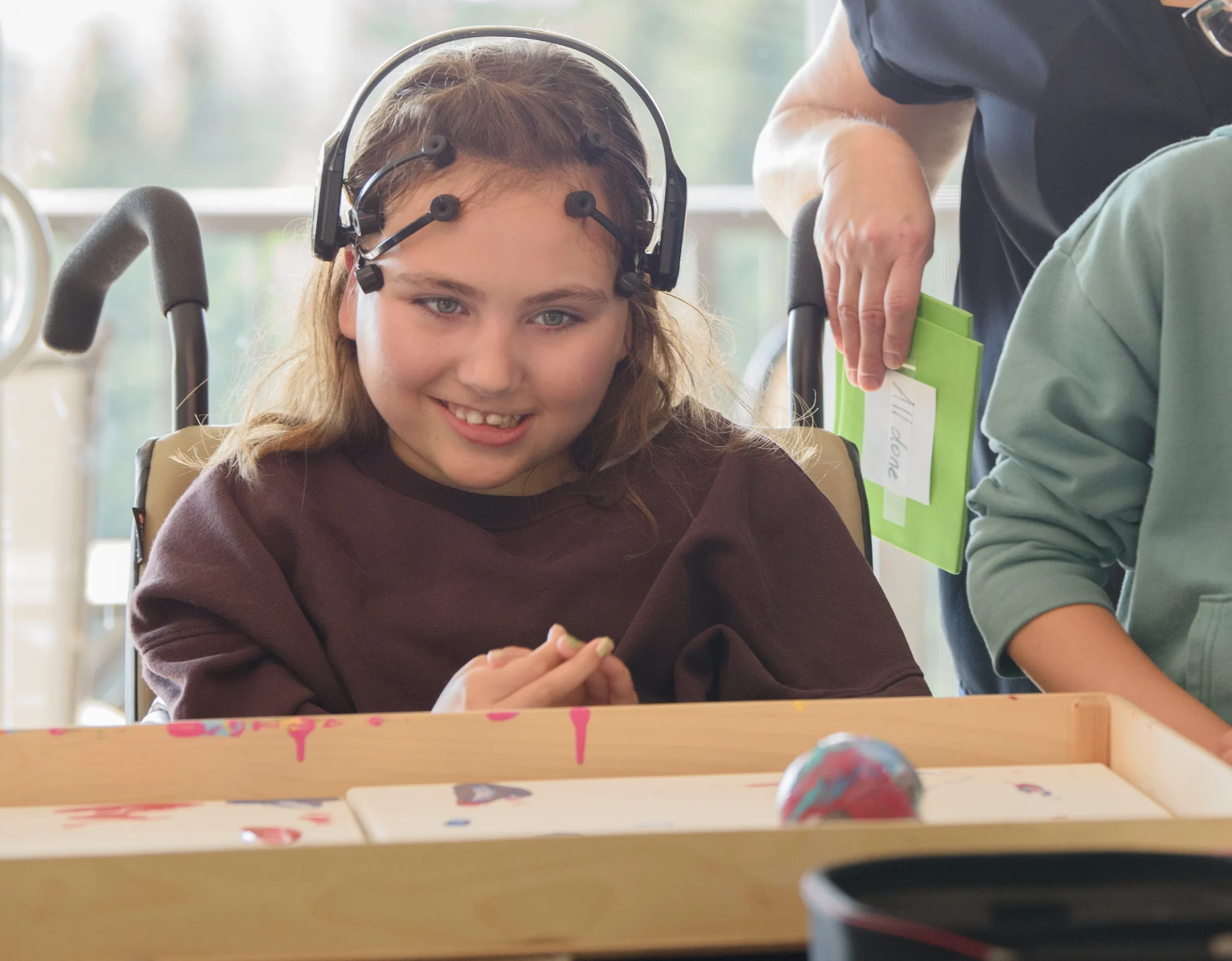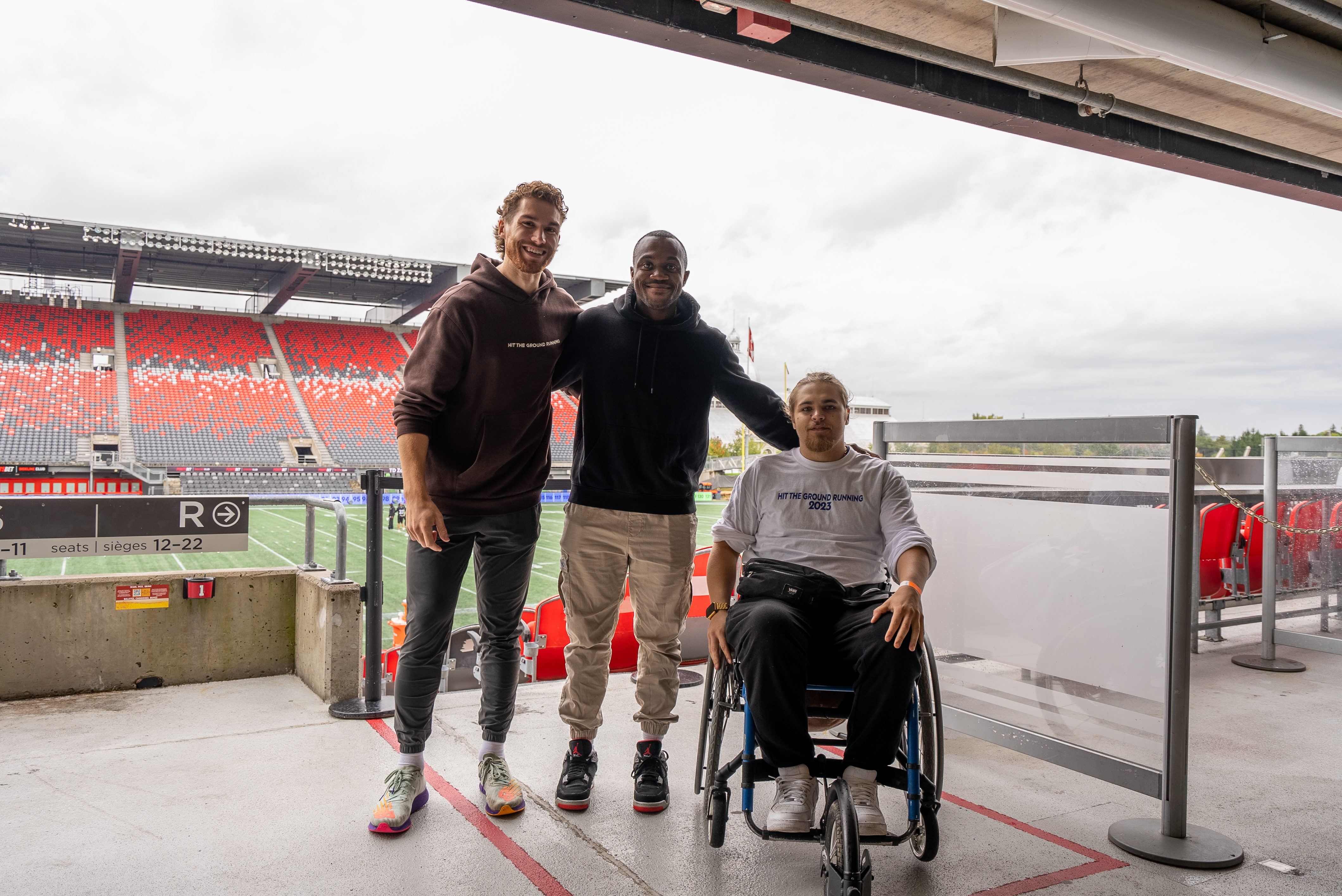
Health
Maximizing independence through technology
Nov 21, 2022
When Olivia was born, Stephen and Elana were excited to become first-time parents. They recall Olivia being a happy baby - smiling, rolling over and experiencing many developmental milestones in the first year of her life. But as Olivia grew older, she wasn’t keeping up with other kids her age.
Olivia was first diagnosed with global developmental delay. She then received the diagnosis of Rett syndrome.
“Rett syndrome is a genetic condition where a child progressively loses the abilities that they gained in the first year of their life such as speech, movement and coordination of the body,” says Dr. John Anderson, Medical Director with the Glenrose Rehabilitation Hospital’s Brain Computer Interface Program. “You can imagine as a parent, seeing your young infant develop and then all of a sudden begin to lose those abilities, it’s devastating.”
Turning thoughts into action

Holland Bloorview Kids Rehabilitation Hospital in Toronto has pioneered the development of pediatric Brain Computer Interface (BCI) technology as a communication pathway for children with severe speech and motor impairments. BCI is a non-invasive technology that utilizes brain signals and turns them into commands using a computerized headset. Holland Bloorview Kids Rehabilitation Hospital’s BCI Interface program integrates leading-edge research with clinical care and teaching, in order to unlock opportunities for young people with disabilities to feel more connected through play and communication. Ultimately, allowing children and youth with significant neurological challenges to live with more independence which often results in improved mental health and well-being.
With funding from a TELUS Friendly Future Foundation Innovation Grant, Holland Bloorview Kids Rehabilitation Hospital Foundation is providing children and youth with verbal and physical challenges access to life-changing BCI technology. By harnessing the power of this technology, the organization, along with other partner hospitals across Canada such as the Glenrose Rehabilitation Hospital in Edmonton, are empowering young people to express themselves and perform motion control tasks in ways that they could never imagine would be possible before.
Olivia’s life-changing experience with the Glenrose Rehabilitation Hospital
In Edmonton, hundreds of children and youth live with severe neurological disorders and have complex communication needs like Olivia. With funding from TELUS Friendly Future Foundation, the TELUS Edmonton Community Board provided a grant to the Glenrose Rehabilitation Hospital Foundation to support a specialized BCI device lending library so that young people living with severe neurological disabilities can receive access and support through the technology. This grant is helping get BCI technology out of the lab and into the community and families’ homes.
Today, Olivia is using BCI to learn how to control her wheelchair, push and pull objects and play independently with her sister and pet dog.
"It is absolutely mind blowing to see what Olivia has been able to do,” said Stephen Terry, Olivia’s father. “My heart is filled with joy to see her engage with other kids and have other kids engage with her."
Thanks to the support of our donors and visionary organizations like Holland Bloorview Kids Rehabilitation Hospital Foundation and the Glenrose Rehabilitation Hospital Foundation, we’re helping children and youth with severe neurological disabilities live more independent lives and meaningfully connect with others.

